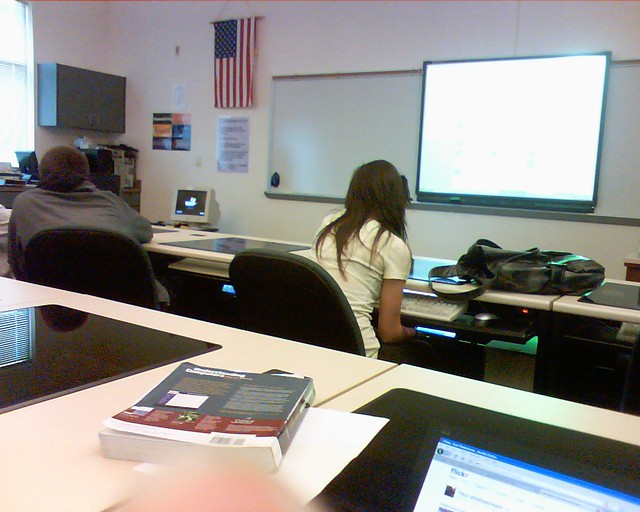What will you learn today? Your brand naturally evolves as you gain skills and competencies to function more effectively. Consider these three ways of building your brand and identify a learning strategy that works best for you.
Formal education
 Classes and courses are available in many fields to facilitate your learning. Going back to school, part or full time, has advantages and disadvantages. Formal education can consume a huge amount of time and resources, however for some, the advanced diplomas or degrees may lead to opportunities not available to those who lack them.
Classes and courses are available in many fields to facilitate your learning. Going back to school, part or full time, has advantages and disadvantages. Formal education can consume a huge amount of time and resources, however for some, the advanced diplomas or degrees may lead to opportunities not available to those who lack them.
Some formal educational programs are more academic than applied. For many people, this is a disadvantage of formal education, as the program does not teach the specific skills you need to work in the field. For others, theoretical insights are interesting and a helpful addition to their knowledge and brand.
Short courses, conferences, and workshops are alternative ways to build formal education into your brand. These programs are usually targeted and can provide evidence of your interest in learning and developing in a specific area. Shorter, applied courses may be directly linked to work duties, but may limit the options and opportunities available to graduates.
Unfortunately, many educated people are underemployed; working in jobs that don’t require the formal education level they have worked so hard to achieve. Perhaps underemployment is better than unemployment, but unless you are an education junkie, research the marketability of an educational program before investing your hard earned dollars.
Does your field of interest require formal educational credentials? Will you hit a ceiling in your opportunities without them? How will higher education affect your salary? Is formal education worth the investment for you?
Informal learning
You can learn just about anything on your own. OK, maybe not brain surgery or other highly specialized competencies, but there is a wealth of educational material available free or for a small fee on the Internet. Public libraries are also a wonderful source of information as are many government agencies and departments.
Informal learning requires considerable critical thinking and assessment skills on your part. All information has some bias. Much of the information available for free is created in an attempt to market some product or idea. Without becoming cynical, you must learn to sort out the useful facts and theories.
Informal learning is well suited for work in which you can demonstrate your portfolio of skills. For example, if you learned to build websites on-line, you can use samples of your work to show your skills. A portfolio may be all you need to obtain work.
Are you working in a field where your product or actions can act as proof of your competence? How are you demonstrating your interest in and awareness of informal learning opportunities? Do you have the persistence necessary to learn independently?
Experience
Experience is one of the best teachers. We get experience by working on our own or under the guidance of someone else. As we complete tasks and goals we learn what works and doesn’t work.
One excellent way to get experience is to volunteer. Volunteer experiences provide opportunities to use and develop skills in a semi-formal environment, usually with the support of someone skilled in the area. You not only learn skills, you also gain contacts and connections in your field of interest. Many volunteer positions include some formal educational components, usually provided free of charge if you are willing to make a volunteer time commitment. Working with someone who is more skilled than you are is one of the best ways to learn from experience.
As with informal learning, you must be able to demonstrate your experience. Working for someone else is easily documented. It is harder to demonstrate your self-employed work experience. This is where recommendations and endorsements are helpful tools. If you make beautiful cabinets, quilts, artwork, or crafts, take pictures of your work. Collect samples that show your abilities and ensure these are available for people to see. In many fields, work samples can be as useful or more useful than any credential.
Of course, these three learning strategies often go hand-in-hand. Consider the combination of formal education, informal learning, and experience that works best for building your personal brand.
Author:
Donna Dunning, PhD, is a psychologist, certified teacher, member of the MBTI ® International Training Faculty, and director of Dunning Consulting Inc. She is the author of more than a dozen publications, including her two newest books, 10 Career Essentials and What’s Your Type of Career? 2nd edition. Donna’s guiding principle is: Know yourself, respect differences, learn and grow. Follow Donna on Twitter and Facebook and visit her website.












